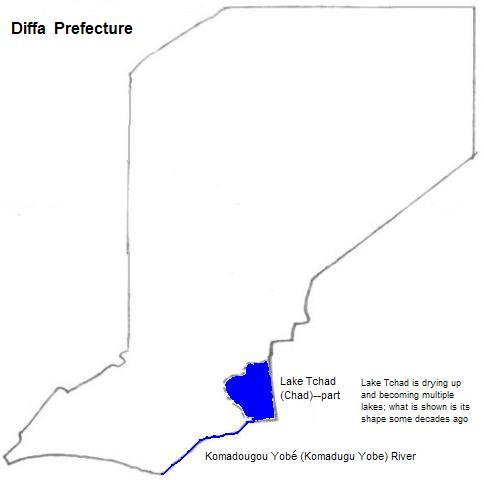
| To Duval Family Home Page | Africa | |
| To Chris Home Page | Niger | |
| To Earth (Geography Home Page) |
Most of Diffa Prefecture is uninhabited desert but in the south--near Lake Chad
Most of the inhabitants

People have lived in the area since leaving Ethiopia
About ten thousand years ago it is said
The Fulani probably arrived in the Department from the west in the 19th century with the Empire of Osman dan Fodio.
north
east and southeast
southeast, near the lake
south
west
(1) Tchad in French. Lake Chad is Africa's third largest, before it started to dry up.
(2) There are about 400,000 Kanuri speakers in Zinder and Diffa. I guess about 230,000 live in Diffa partly based on information about the dialects.
(3) There are over 800,000 Fulani (Fulfulde) speakers in Niger. I guess only about 20,000 live in Diffa largely based on my estimate on the number of Kanuri speakers there and my exptrapolation of the Departments population in 1998 versus the 1977 census using the national ratio.
(4) Also called Fulfude.
(5) world-gazetteer.com, accessed 1/17/2010
(6) Ityopia in transliteration from Amharic.
(7) By J.E.G. Suttou and Patrick Munson.